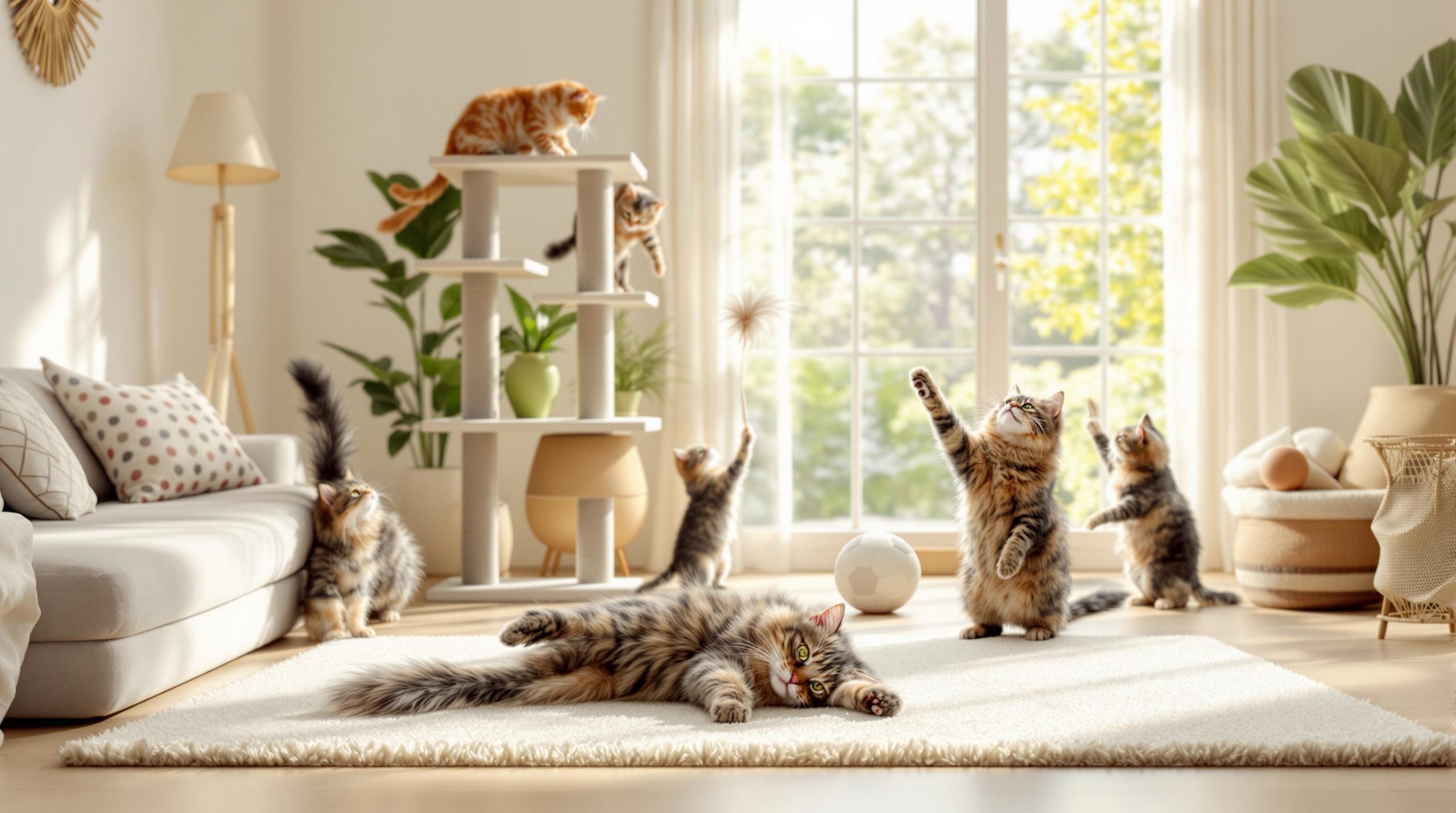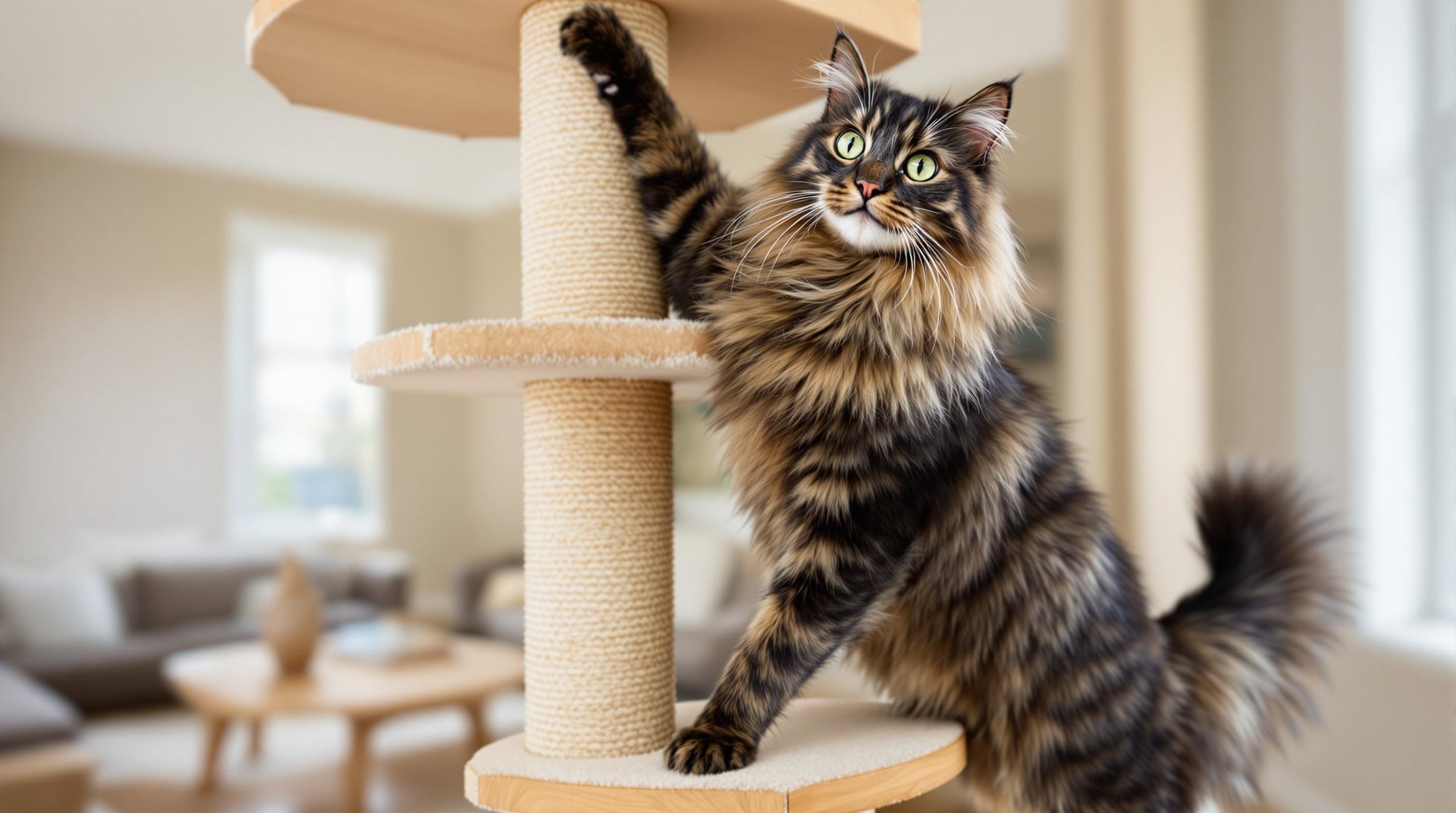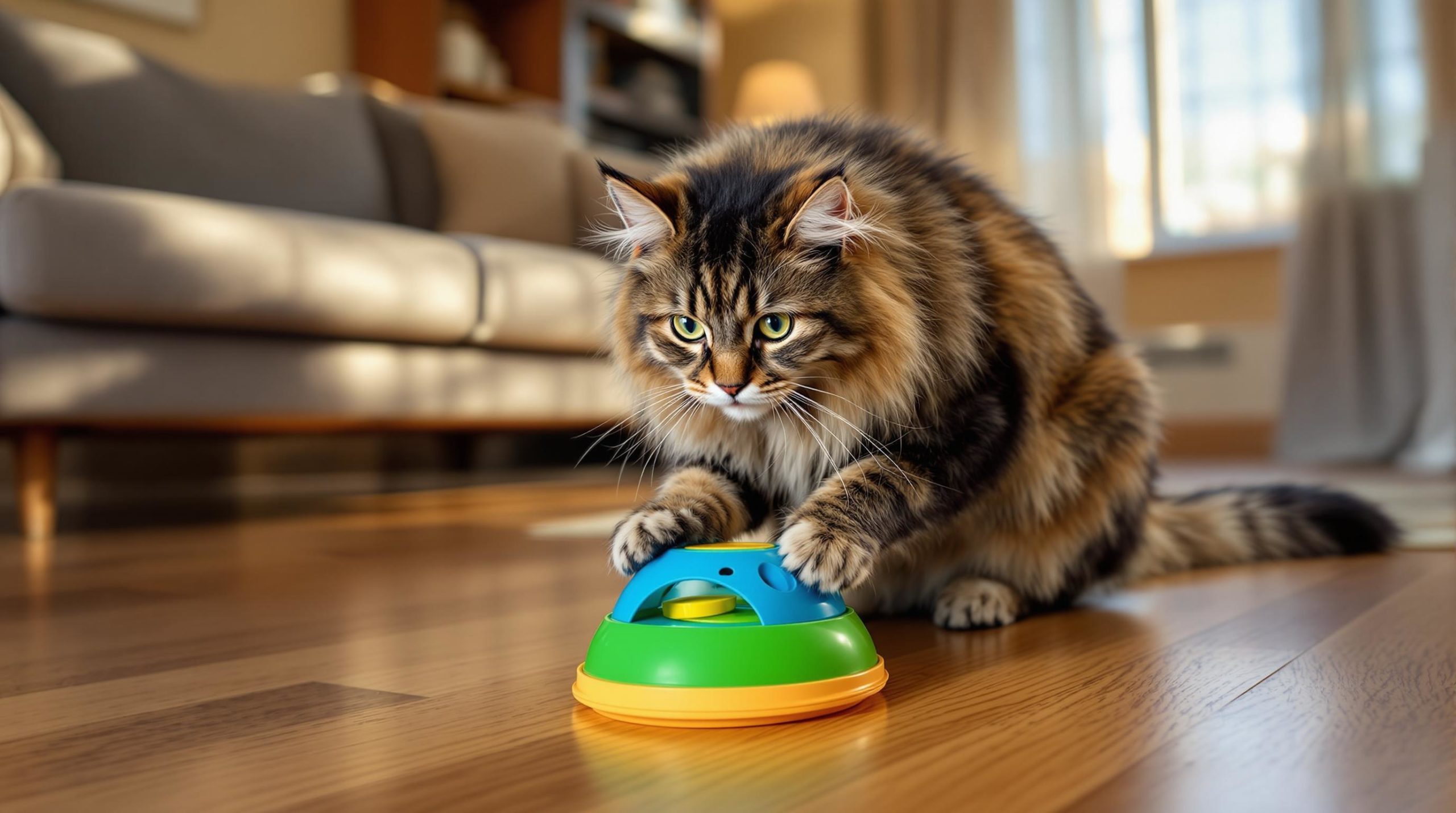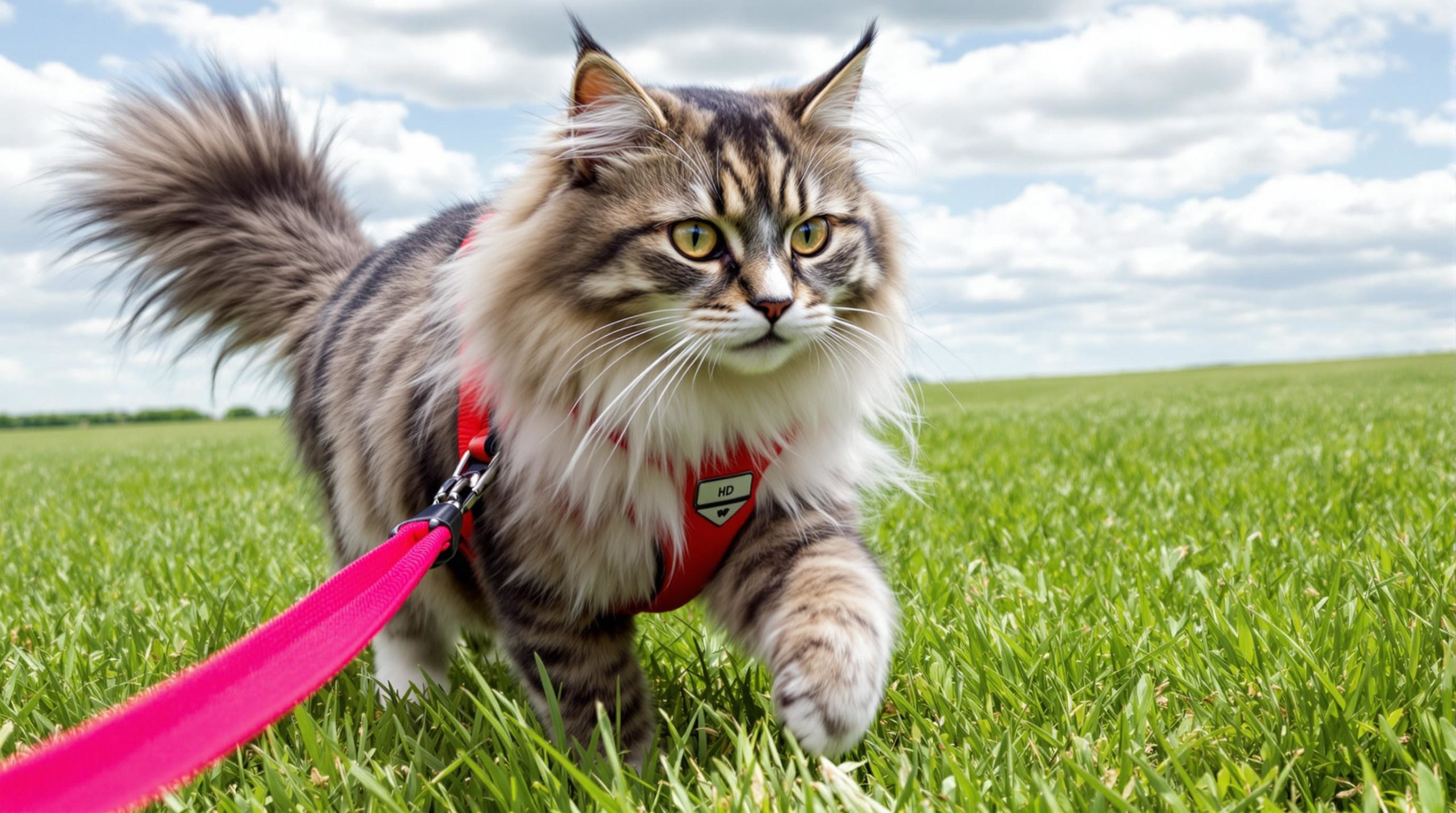Understanding the exercise needs of Maine Coons for optimal health

The majestic Maine Coon cat is renowned not only for its impressive size but also for its playful and energetic nature. This gentle giant thrives on consistent exercise to support its muscular frame and overall well-being. Understanding the unique physical and mental activity requirements of Maine Coons is fundamental to ensuring their health and happiness. Each day brings an opportunity to enrich their lives, balancing vigorous play with restorative rest, while addressing their innate hunting instincts and social tendencies. The interplay between proper nutrition, exercise, and mental stimulation becomes a cornerstone of care for these remarkable felines, guiding responsible owners in fostering long, vibrant lives for their companions.
Key Exercise Requirements and Techniques for Maine Coons: Building the Foundation for Health
Exercise plays a pivotal role in the life of a Maine Coon, a breed distinguished by its large, muscular body and high intelligence. Their active lifestyle demands at least 20 to 30 minutes of daily exercise to maintain optimal fitness and prevent obesity, a common challenge given their size. Yet, quantity alone is not enough; the diversity and intensity of physical activities significantly impact their well-being.
Maine Coons benefit enormously from a blend of physical exertion and mental engagement. Their natural curiosity and hunter’s instincts make interactive play with toys a prime way to spark their enthusiasm. Items such as feather wands, laser pointers, and string toys not only burn excess energy but also provide satisfying hunting simulations. These activities challenge their dexterity and keen senses while preventing boredom.
Vertical activity is another essential element. Due to their muscular build and love for climbing, Maine Coons flourish when encouraged to explore cat trees, wall-mounted shelves, or even outdoor enclosures known as catios. These spaces provide not only exercise but also valuable environmental enrichment—letting cats survey their territory from a height, which aligns perfectly with their instincts.
Social interaction, both with humans and other pets, also forms an integral part of their exercise regime. Maine Coons are known for their sociable disposition, often engaging in playful tussles with other cats or even dogs, providing both mental and physical stimulation.
- Daily minimum of 20-30 minutes physical activity
- Interactive hunting-style play with toys like wands or lasers
- Access to climbing structures to support muscle development
- Social play sessions with other pets or humans
- Incorporation of mental challenges such as food puzzles
| Exercise Type | Benefits | Recommended Duration |
|---|---|---|
| Interactive Play | Burns energy, stimulates hunting instincts, reduces boredom | 15-20 minutes daily |
| Climbing & Exploration | Develops muscle tone, satisfies curiosity | Continuous access encouraged |
| Social Play | Mental stimulation, emotional well-being | Varies depending on cat’s interest |
| Mental Challenges (Food Puzzles) | Enhances problem-solving skills, slows eating | 10-15 minutes daily or as needed |
Addressing these exercise needs comprehensively lays the groundwork for preventing weight-related issues and helps maintain the Maine Coon’s muscular physique throughout its life. The synergy between physical and mental exercises also helps mitigate behavioral problems arising from boredom or insufficient stimulation. Owners looking to delve deeper into the Maine Coon’s size and growth can consult this resource for detailed insights.

Adapting Exercise Routines to Age and Temperament in Maine Coons
Every Maine Coon is unique, and their exercise needs vary with age and personality. Kittens, adolescents, adults, and seniors require distinctly tailored routines that consider their energy levels and physical capabilities. Recognizing these nuances ensures the cat remains engaged and healthy throughout its life stages.
Kittens exhibit boundless energy and curiosity. Their playtime can be more frequent and shorter to accommodate their developing coordination and attention spans. Toys that encourage chasing, pouncing, and climbing stimulate natural behaviors and aid in physical development. High-quality nutrition aligned with brands like Orijen or Instinct Raw supports this rapid growth phase.
Adult Maine Coons generally maintain robust energy levels but may show preferences for particular activities. Maintaining daily play sessions that blend vigorous chasing with climbing and interactive puzzles fosters not only muscular maintenance but also mental acuity. At this stage, attention to weight management is crucial. To assist, top-tier diets such as Royal Canin, Hill’s Science Diet, or Purina Pro Plan can be incorporated to complement exercise routines.
Senior cats often experience reduced stamina and joint flexibility, calling for gentler, low-impact exercise. Encouraging shorter, calm play sessions and facilitated access to climbing perches without excessive jumping can help prevent strain. Nutritional support with supplements or specific formulas like Blue Buffalo or Wellness Natural Pet Food helps maintain joint health and overall vitality.
- Kittens: Multiple short play sessions focusing on exploration and hunting skills
- Adults: Sustained daily exercise of moderate to high intensity with mental enrichment
- Seniors: Low-impact activities and gentle play with joint-supportive nutrition
| Life Stage | Exercise Needs | Preferable Diet Choices | Additional Care Tips |
|---|---|---|---|
| Kitten (0-6 months) | Frequent short play sessions, lots of climbing | High protein, nutrient-rich (Orijen, Instinct Raw) | Regular grooming, safe environment |
| Adult (1-8 years) | Daily 20-30 minutes, mixed intensity | Balanced diet supporting muscle & weight (Royal Canin, Hill’s) | Regular vet check-ups, weight monitoring |
| Senior (8+ years) | Gentle play, assisted climbing | Joint support supplements (Blue Buffalo, Wellness) | Comfortable resting spots, exercise adapted |
Each Maine Coon owner would benefit from tailoring exercise and nutrition plans to the cat’s individual stage of life and personality. For advice on health-specific considerations, including weight and joint issues, resources such as this comprehensive guide offer invaluable insights.
Innovative Exercise Strategies: Engaging the Mind and Body of Maine Coons
While physical activity is paramount for Maine Coon well-being, integrating mental challenges can significantly enhance their quality of life. These intelligent cats particularly benefit from activities that blend cognitive stimulation with physical movement.
Food puzzles and treat-dispensing toys serve a dual purpose: they slow down feeding, easing digestion, while exercising problem-solving skills. These puzzles engage a Maine Coon’s curiosity and keep them occupied, especially when owners are away during the day. Incorporating brands like Merrick Pet Care or Natural Balance in treats can add the nutritional value necessary for their energy demands.
Obstacle courses, whether indoors or within a secure outdoor space, invite physical agility and creativity. Simple setups may include stacked boxes, tunnels, and strategically placed toys encouraging hops, leaps, and runs. Advanced cat trees featuring platforms at varying heights also encourage climbing, supporting their muscular dexterity.
Apart from solitary play, many Maine Coons enjoy interactive training sessions with their humans. Utilizing rewards to teach commands such as “sit,” “high five,” or “come” channels their intelligence and nurtures the human-animal bond. This technique mirrors recent successful canine training approaches and underscores the breed’s adaptable nature.
- Use various food puzzles to encourage problem-solving
- Create homemade or store-bought obstacle courses for physical challenge
- Engage in interactive training sessions with positive reinforcement
- Rotate toys regularly to maintain interest and stimulation
| Mental Exercise | Physical Component | Expected Benefits |
|---|---|---|
| Food Puzzles | Light paw movements to access food | Slowed feeding, cognitive engagement |
| Obstacle Courses | Jumping, climbing, running | Enhanced muscle tone, mental stimulation |
| Training Sessions | Following commands, movement | Strengthened human bond, mental sharpness |
| Toy Rotation | Variety in play styles | Reduced boredom, sustained interest |
By combining diverse activities, Maine Coons can experience a richer life both mentally and physically. Owners can explore reliable information about Maine Coon health problems and solutions by visiting this dedicated page to ensure their cats’ exercise routine supports longevity and vitality.

Recognizing and Addressing Exercise Deficiencies in Maine Coons
Even the most charming of Maine Coons can exhibit signs of under-activity, which can lead to health and behavioral issues. Owners should remain vigilant for indicators suggesting their feline companions require adjustment in activity levels.
Weight gain is a prominent warning that insufficient exercise may be undermining a cat’s health. Given the breed’s predisposition towards obesity, a sedentary lifestyle invites complications such as joint stress and metabolic syndrome. Regular weighing and using a body condition score chart, like the one available on MaineCoonLife, can help track fitness.
Behavioral signs also merit attention. Boredom or lack of stimulation manifests in excessive grooming, destructive scratching, or persistent vocalizing. Moreover, a decline in enthusiasm during playtime sessions confirms the need to refresh the activity routine.
To correct these deficits, owners can:
- Introduce new and interactive toys regularly
- Schedule consistent play sessions, avoiding irregular exercise
- Encourage climbing opportunities by adding or rearranging cat structures
- Explore walking on a leash as a novel outdoor experience, ensuring use of a safe harness
| Signs of Exercise Deficiency | Potential Causes | Recommended Solutions |
|---|---|---|
| Weight gain | Overeating, lack of activity | Balanced diet, daily exercise |
| Destructive behavior | Boredom, frustration | Toys, playtime, mental stimulation |
| Disinterest in play | Monotonous routine | Rotate toys, introduce new games |
| Excessive vocalizing | Seeking attention, stress | Social interaction, exercise |
Addressing these signs early avoids the progression towards chronic conditions and contributes to a longer, more active life, consistent with data on Maine Coon lifespan available at MaineCoonLife. Additionally, exploring cost aspects of Maine Coon care can prepare owners for investments in appropriate exercise and health supplies (link here).

Designing an Optimal Environment for Active and Healthy Maine Coons
Creating an enriched living environment optimally supports a Maine Coon’s natural tendencies towards activity and adventure. The domestic setting should cater to their agility, social nature, and playful spirit while ensuring safety and comfort.
Certain elements greatly enhance exercise opportunities:
- Vertical spaces: Cats favor height as a vantage point. Installing sturdy cat trees, shelving cubes, or wall-mounted ledges encourages climbing and jumping.
- Interactive play zones: Dedicating areas with a range of toys and puzzles invites spontaneous activity throughout the day.
- Outdoor access: Where feasible, a secure, weatherproof catio allows safe exploration with natural stimuli like fresh air, sunshine, and moving foliage.
- Social interactions: Engaging repeatedly with humans or compatible pets enriches social and physical activity.
Attention to comfortable resting spaces is equally important. After play, Maine Coons seek peaceful spots to recharge. Providing cozy bedding supports their recovery and overall well-being.
| Environmental Element | Function | Examples |
|---|---|---|
| Vertical Spaces | Facilitates climbing, exercise, observation | Cat trees, shelves, window perches |
| Interactive Zones | Offers diverse play opportunities | Toys, food puzzles, laser pointers |
| Outdoor Access | Natural enrichment, sensory stimulation | Catios, supervised leash walks |
| Social Interaction | Emotional and mental health benefits | Playdates, family involvement |
| Rest Areas | Recovery and stress reduction | Soft beds, hammocks, heated pads |
By combining these elements, owners foster an environment that nurtures a Maine Coon’s robust physique and affable personality. For those preparing to introduce a Maine Coon kitten into their home, comprehensive guidance is available at this helpful page.
Frequently Asked Questions about Maine Coon Exercise Needs
- Do Maine Coon cats need more exercise compared to other breeds?
Yes. Their larger size and muscular build mean Maine Coons require more physical and mental activity than many other domestic cats to maintain health and prevent obesity. - Can an indoor Maine Coon get enough exercise without outdoor access?
Absolutely. With thoughtful provision of vertical spaces, interactive toys, and frequent play sessions, indoor Maine Coons can achieve their daily exercise recommendations safely. - How do I tell if my Maine Coon needs more activity?
Indicators include weight gain, decreased interest in play, increased destructive behavior, and excessive vocalization. Consulting resources such as MaineCoonLife helps identify and manage these issues. - Is leash walking a good idea for Maine Coons?
Yes, if introduced gently with a proper harness and patience, leash walking can be a stimulating exercise and enrichment experience. - What diets best complement the exercise needs of Maine Coons?
High-quality, protein-rich diets such as Royal Canin, Orijen, and Merrick Pet Care support muscle maintenance and energy levels, optimizing the benefits of exercise.